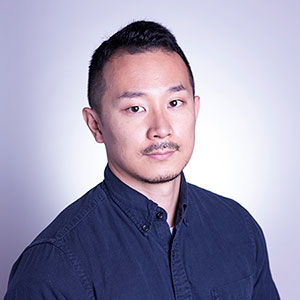Even as the world continues to grapple with the COVID-19 pandemic, scientists are still trying to find antiviral therapies to treat those who become infected.
"As the COVID-19 pandemic continues, the need for developing effective treatment is necessary to save lives and to break the transmission chain," said Keisuke Ejima, assistant research scientist at the IU School of Public Health-Bloomington and lead author of a series of studies. "However, we need to understand the biological characteristics of this virus and appropriately design clinical studies to identify effective treatment."
A recent study from an international research group including Indiana University found that SARS-CoV-2, the virus that causes COVID-19, is very different, biologically and clinically, from other coronaviruses. That difference may be associated with the difficulty in controlling disease spread and disease burden. The study was published in PLoS Biology.
Using a mathematical model, researchers investigated how the viral load of SARS-CoV-2 changes over time within humans at acute phase of infection. They particularly focused on the timing of peak viral load and compared it with other coronaviruses. They found that the peak appears about two days after symptom onset for SARS-CoV-2, which is far shorter than the other coronaviruses, such as SARS-CoV-1 at 7.2 days and MERS at 12.2 days.
"It is known that antiviral treatment needs to be initiated before symptom onset. So our work shows that we have only two days of 'grace period,' which makes this really challenging," Ejima said. "Do you go to see doctors just because you have a mild fever? You may wait several days. However, at this point, it might be too late to start antiviral treatment for this virus."
Ejima said the other finding from this study is that the viral load peak appears early after symptom onset, which suggests that the virus is transmissible even before symptom onset. This is why people need to keep wearing masks even when they are not sick.
The team is also studying why clinical studies investigating the effect of antivirals for SARS-CoV-2 mostly fail to see significant findings using the same framework. According to their research, an appropriate study design for clinical trials is the key.
Clinical trials have been conducted to identify effective drugs, and those trials recruited patients who are randomly assigned to treatment and placebo groups. Outcomes, such as recovery, are compared between the groups.
Based on the previous analyses of viral load dynamics, Ejima's team computed how many patients need to be recruited in clinical trials to see significant effects of antivirals. They found that if patients are recruited to clinical trials regardless of the time since symptom onset, the number should be over 10,000, which is unreasonably large. With smaller numbers, many patients are recruited too late to see effective antiviral treatment. However, if they only recruit patients within two days since symptom onset, they found that only 500 patients need to be recruited.
"Even though antivirals are effective, their true effect cannot be observed if the timing of treatment is not considered," Ejima said. "I am afraid many clinical trial studies prematurely concluded that the treatment was not effective just because patients were recruited way after symptom onset."


